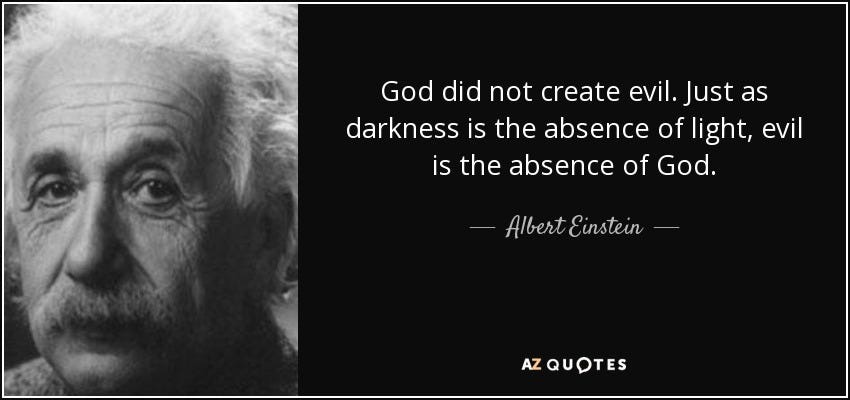❌ Would God Command Something Inherently Evil?
A Christian Examination of Moral Authority, Scripture, and God’s Nature
👣 Introduction: Wrestling with a Hard Question
One of the most pressing questions people ask—especially skeptics—is this: If God is good, why do some of His commands in Scripture seem… not good? Would a righteous God ever instruct someone to commit an inherently evil act?
From the perspective of the Christian faith, this question is not brushed aside but thoughtfully addressed. Christians believe in a God who is not only all-powerful but all-good. So when we read difficult Bible passages—such as the command for Abraham to sacrifice Isaac or the conquest of Canaan—we must ask: Is God commanding evil? Or are we misunderstanding what’s going on?
This blog explores this issue using Scripture, theology, and the voices of trusted Christian thinkers past and present.
📖 What Is “Good”? — The Biblical Definition
“Good” is not defined by majority vote, emotion, or culture. In Christianity, God Himself defines good. As Jesus said in Mark 10:18, “No one is good—except God alone.” In other words, goodness isn’t something external that God measures up to—it’s something He is.
- Psalm 119:68 – “You are good, and what you do is good; teach me your decrees.”
- Micah 6:8 – “He has shown you, O mortal, what is good.”
- Romans 12:2 – God’s will is described as “good, pleasing, and perfect.”
So the foundation of Christian morality is not a list of rules but a relationship with the unchanging nature of God. What God commands flows from who He is: holy, just, and loving.
⚖️ What Is Inherently Evil?
An inherently evil act is something that is morally wrong in every situation—such as murder, theft, lying, or sexual abuse. These acts are not wrong because society says so. According to Scripture, they violate God’s own character and His design for human life.
Christians believe that God cannot contradict Himself, meaning He cannot do evil or command evil.
- James 1:13 – “God cannot be tempted by evil, nor does He tempt anyone.”
- Habakkuk 1:13 – “Your eyes are too pure to look on evil.”
- Titus 1:2 – “God, who does not lie…”
God’s moral commands are not options. They reflect what He is. Therefore, to ask if God could command something inherently evil is to question whether God could deny Himself—which is a theological impossibility.

🧠 Theology and Philosophy: The Euthyphro Dilemma
The ancient Greek philosopher Plato posed a famous question:
“Is something good because God commands it, or does God command it because it is good?”
If the former, morality seems arbitrary. If the latter, God isn’t the source of goodness—He’s just following some higher law.
Christian thinkers resolve this dilemma by saying:
“God commands what is good because His nature is good.”
Thus, morality is neither arbitrary nor above God. It is rooted in His very being. He cannot command evil, because He is good by definition.
This solution is sometimes called the “Modified Divine Command Theory” and has been embraced by thinkers like William Lane Craig and Alvin Plantinga.
⛰️ Hard Scriptures: Did God Command Evil?
Some Old Testament passages raise eyebrows. Let’s take a closer look at two of the most debated examples.
🔪 Abraham and Isaac – Genesis 22
God tells Abraham to offer his son Isaac as a burnt offering. Isn’t that a command to kill an innocent child?
Christian Viewpoints:
- It was a test, not a completed act – God stopped Abraham (Genesis 22:12), showing He never intended Isaac to die.
- Foreshadowing Jesus – Isaac’s near-sacrifice points forward to Christ, God’s own Son, offered in our place (John 3:16).
- A call to trust – Hebrews 11:17–19 says Abraham believed God could raise Isaac from the dead.
In this account, God did not command murder; He tested Abraham’s trust and intervened before harm was done. The moral horror that would have existed had Abraham killed Isaac was preemptively stopped by God’s provision of a ram.
⚔️ The Canaanite Conquest – Joshua & Deuteronomy
God instructs Israel to destroy wicked nations in Canaan. Critics say this resembles genocide.
Christian Response:
- God acted as Judge – Deut. 9:4–5 shows this was judgment for extreme wickedness, including child sacrifice.
- Not moral permission for violence – These commands were specific, not moral blueprints.
- Historical and covenantal – God was forming a holy nation set apart from corrupt cultures (Leviticus 18:24–30).
While disturbing to modern ears, these were not “evil orders,” but divine justice through limited historical acts. Christians hold that God has the right to judge nations and that these commands had redemptive, not arbitrary, intent.
🗣️ Voices from the Church: What Theologians Say
🧓 Augustine (4th Century)
“God judged it better to bring good out of evil than to allow no evil to exist.”
Augustine taught that God permits evil to exist in the world but never commands it. He brings good from evil—but He Himself is never its source.
🧓 Thomas Aquinas (13th Century)
“God’s will cannot be contrary to His nature, and His nature is perfect goodness.”
Aquinas argued that God cannot command anything that violates His own moral law. He is the author of truth and goodness.
🧓 John Calvin (16th Century)
Calvin emphasized God’s sovereignty but insisted that even when God uses human evil (like Judas betraying Jesus), He does not command sin. God allows evil but is never its source.
🧔 R.C. Sproul (20th Century)
“If God ever commanded evil, He would cease to be holy. But He cannot cease to be holy.”
Sproul held that God’s holiness is inviolable. His commands are rooted in righteousness.
🧔 C.S. Lewis (20th Century)
In Mere Christianity, Lewis noted that if good is just whatever God happens to say, then God could just as easily say cruelty is good. But since God’s nature is unchangeably good, that scenario is impossible.
❗ But What About People Who Claim “God Told Me”?
Unfortunately, history is full of people—cult leaders, criminals, even misguided believers—who claim, “God told me to do it,” after committing horrible acts.
Here’s how Christians evaluate such claims:
📌 Biblical Discernment
- Test the spirits (1 John 4:1)
- God does not contradict His Word (2 Timothy 3:16–17)
- The Holy Spirit never leads into sin (Galatians 5:22–23)
- Jesus is the perfect moral example (Hebrews 1:1–3)
If a voice, prompting, or prophecy leads someone to sin, it’s not from God.
🧝 When God’s Commands Are Hard, But Not Evil
Sometimes God’s commands are difficult, but that doesn’t mean they’re evil. Take Jesus’ teachings:
- Love your enemies (Luke 6:27)
- Deny yourself and take up your cross (Matthew 16:24)
- Forgive 70×7 (Matthew 18:22)
These commands challenge us, but they are morally good. They reflect the character of Christ, not cruelty or injustice.
The Christian life involves sacrifice, suffering, and discipline—but never sin. God leads us through valleys, not into them for destruction.
🧱 God’s Moral Framework Is Clear
The Ten Commandments, the teachings of Jesus, and the witness of the Holy Spirit give us a clear moral compass.
- God does not command lies — “Do not bear false witness” (Exodus 20:16)
- God does not command hate — “Love your neighbor as yourself” (Mark 12:31)
- God does not command injustice — “Let justice roll on like a river…” (Amos 5:24)
If someone believes they are called to act in hate, cruelty, or injustice, they are not obeying God’s moral commands—they are misled.
🙏 God Brings Good from Evil—But Doesn’t Command It
The clearest example of this is the crucifixion of Jesus.
- Acts 2:23 – Jesus was “handed over by God’s set purpose and foreknowledge.”
- Acts 4:27–28 – Even the actions of Herod, Pilate, and the soldiers fulfilled God’s plan.
God used their evil to accomplish salvation, but He did not command them to sin. They were morally responsible.
God is the master artist who takes the darkest threads of human sin and weaves them into a greater redemptive tapestry.
🌿 Final Reflections: The Impossibility of a Wicked Command
From a Christian perspective, it is impossible for God to command something inherently evil. To do so would be to contradict His nature. His justice, mercy, and holiness form the basis for every command He gives.
If something seems evil, we must examine:
- Are we misunderstanding Scripture?
- Are we misinterpreting historical context?
- Are we listening to a false voice?
God’s commands are never cruel. They are good—even when they challenge us. As Paul reminds us in Romans 8:28:
“And we know that in all things God works for the good of those who love him, who have been called according to His purpose.”
📛 References
- Augustine, City of God
- Thomas Aquinas, Summa Theologica
- R.C. Sproul, The Holiness of God
- C.S. Lewis, Mere Christianity
- William Lane Craig, Reasonable Faith
- Scripture (ESV/NIV): Genesis 22, Deuteronomy 9, James 1, Romans 8, Mark 10, Acts 2, 1 John 4
📝 Published by Mountain Veteran Ministries
💬 Leave a comment below or share this blog if it stirred your heart.
📧 Subscribe to our newsletter for more gospel-rooted insights.

